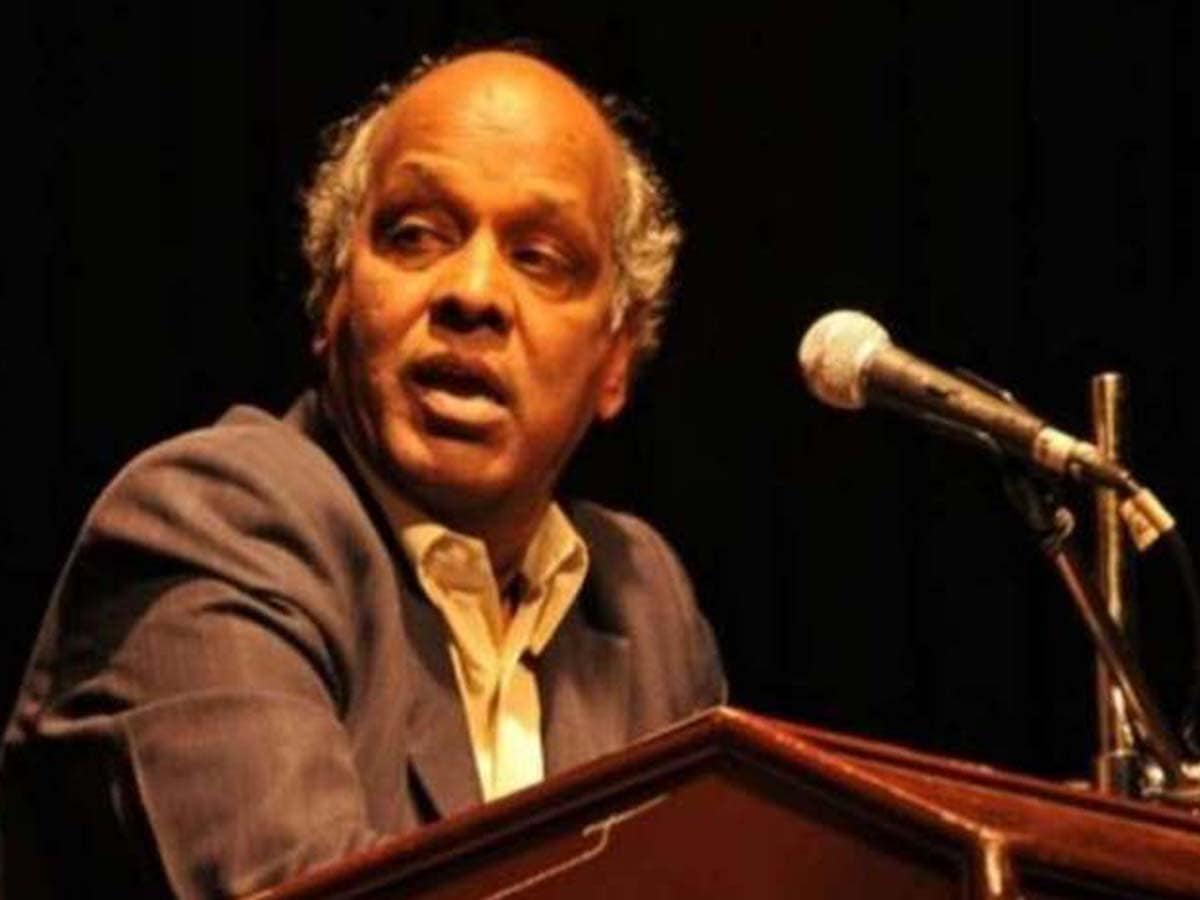Manzar Imam
DOCTOR RAHAT INDORI, unarguably contemporary India’s loudest and one of the most emphatic voices of poetical protest, died of cardiac arrest aged 70 after being tested coronavirus-positive on 11 August at Sri Aurobindo Institute of Medical Sciences, Indore. He leaves behind three sons and a daughter.
Besides poetry, he also wrote lyrics for a number of films. My familiarity with Rahat Qureshi, popularly known as Rahat Indori, began with a popular song Tumsa Koi Pyara Koi Masoom Nahin Hai, Kya Chiz Ho Tum Khud Tumhein Maloom Nahin Hai. The song featuring actors Govinda and Karishma Kapoor in a commercially-hit film Khuddar was an instant success and continues to be listened and hummed by song lovers.
Yeh Rishta Kya Kehlata Hai, a song for a 2004 movie, Meenaxi: A Tale of Three Cities, whose music was given by A. R. Rahman, remains another beautiful score for the music lovers. However, it is not as a lyricist but as a poet that Rahat Indori stood out as a unique literary master with a mass appeal.
It was due to his popularity as a people’s poet that his turn would usually come at the end of mushairas, because a huge number of the audience would start dispersing after his stylish recital. Of course, he had carved a niche for himself and was the author of that style which I have not seen anyone ever doing with such a powerful gestures of hands, eyes and other bodily movements, turning right and left, and sometimes even behind, to keep the listeners alert, engaged and enthralled. And that was his hallmark.

He understood the nation’s myriad problems and translated them in his poetry. But his language was simple which the audience could easily understand. During one of the mushairas, he said that he would not translate/simplify the words because he won’t use a difficult language. His remarks against shoddy politics and corruption were quite biting. He did not spare even the media. I still remember his first lines during a mushaira: Banke Ek Haadsa Bazaar Mein Aa Jayega, Aur Jo Nahin Hoga Woh Akhbar Mein Aa Jayega. He hit the nail on the head with Sabki Pagdi Ko Hawaon Mein Uchhala Jaaye, Sochta Hoon Koi Akhbar Nikala Jaaye.
The last time I listened to him live was on 29 November, 2015 during a mushaira at Delhi’s Red Fort, the latest being a virtual one, the famous comedy show with Kapil Sharma, The Kapil Sharma Show. On both these occasions, Indori had to fulfill the audiences’ popular demand to read one of his most assertive ghazals whose two lines, like many others of his poems, have given him an eternal fame.
They are: Sabhi Ka Khoon Hai Shamil Yahaan Ki Mitti Mein, Kisi Ke Baap Ka Hindustan Thodi Hai. Even during the Kapil Sharma Show, the audience gave him a standing ovation for his bold but beautiful poetry which, as always, is steeped in the spirit of Indianness. While the volatile language of India’s contemporary landscape increasingly treats nationalism as a term of exclusion, Indori’s assertion to the idea of inclusive Indian nationalism places him among the towering ‘iconic’ poets for whom poetry, despite being a form of fine art, had the power to shake the authority of the power-bases. In his own words: Sirf Ek Sh’er Uda Dega Parkhache Tere, Tu Samajhta Hai Ke Shayer Hai Yeh Kar Kya Lega.

Like the Great Arjuna in Mahabharata, the eminent poet is caught in a dilemma between sanctity and profanity of the hypocritical masses that largely composes the Indian society today. His openness about his own liberal attitude to life was not liked by the sacrosanct Muslims till he died. After death, the vitriolic attack against him by a hate-mongering population sends shockwaves down the spine. His own lines capture this quandary: Hai Mere Charon Taraf Bhid Gunge Bahron Ki, Kise Khateeb Bana-un, Kise Khitab Karun!
On the one hand, tributes poured in from a lot of media houses and individuals, but, on the other hand, it is painful to see that even a deceased poet is being subjected to all sorts of abuses by sections of the youth whose language refuses to exhibit any sense of decency.
There is a kind of a Faustian bargain between those at positions of power and those, literally, at the receiving end of nothing that bleeds the very idea of India. I hope that saner voices will prevail to prevent this dance of absurdity to keep up the glory that has been the mark of India for millennia. That will be the richest tribute to the departed soul whose lines will keep echoing for centuries.
___________
Manzar Imam is a senior journalist based in New Delhi

